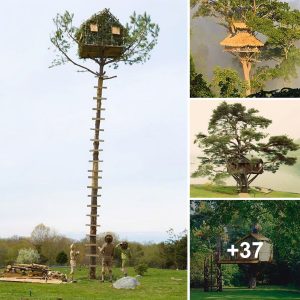The recent finding of a tree in Thailand with a phallic shape is merely the most recent instance showcasing nature’s ability to produce forms that can leave observers feeling uneasy.

Pterocarpus indicus, also referred to as the Burmese rosewood, is a tree native to Southeast Asia, capable of reaching heights of up to 30 meters. What captivates people isn’t just its impressive size but its unique and phallic shape.

SWhen some individuals came across images of the tree on social media, they found themselves feeling uneasy and uncertain about how to react. Many have resorted to humor and wordplay, highlighting its resemblance to male genitalia.

While some may find the tree’s distinctive shape amusing, others express concerns about its potential impact on the local community. The tree’s images could be considered offensive by some Thais due to the country’s conservative cultural norms. Compounding this issue is the fact that the park where the tree is situated is a common destination for families with young children, making it easy for its phallic form to be misinterpreted.

Requests have emerged to either remove or modify the tree, yet there are those who argue that it should be left untouched since it represents a natural occurrence. This discussion prompts reflection on the delicate equilibrium between natural elements and human interventions in public spaces.

On one hand, the tree’s shape is entirely unavoidable and beyond human influence. It has been a part of the landscape for a considerable time, although its recent surge in popularity is primarily attributed to social media sharing.

Nevertheless, public spaces should strive to be inclusive and welcoming to all individuals, and depictions of the tree may indeed be offensive to some. Given that the park where the tree is located is a common destination for families with young children, safeguarding them from inappropriate content is a paramount concern.

Ultimately, the local government will have the final say in determining the tree’s fate. However, this episode serves as a catalyst for profound contemplation regarding our interaction with the natural world in public spaces. It underscores the essential need to strike a fair and harmonious balance between the natural environment and the demands and sensitivities of human civilization.

The discovery of the phallic-shaped tree in Thailand left many people feeling uneasy and sparked a conversation about the delicate balance between nature and human intervention in public spaces. While some advocate for leaving the tree untouched, others express concerns about its potential impact on the neighborhood. Ultimately, the decision rests with local authorities, but perhaps this incident will serve as a reminder to be mindful of human sensitivities whenever possible.








